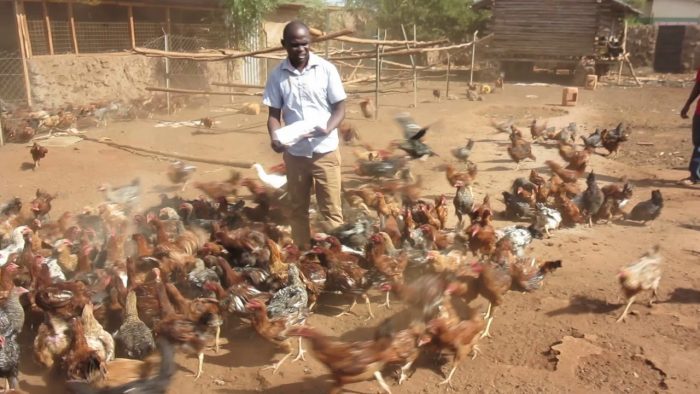By Innocent Mhangarai
Most small-scale farmers have a competitive advantage in their production as they tie together traditional knowledge to their advantage to sustain their livelihoods and withstand shocks. Traditional facts comprehend the intelligence, data and philosophy of societies that is passed from one generation to another. Indigenous knowledge plays a pivotal role when it comes to the rearing of indigenous chickens in SubSaharan African countries. It is the social assets of the underprivileged and their chief ability to capitalize in the fight for continued existence to produce food and to accomplish control of their lives. Their living depends completely on explicit abilities and such intelligence. This means that indigenous knowledge is entrenched in the cultural milieu of these societies.
Indigenous Knowledge Systems refers to cultural practices and traditional remedies used by a certain community. The surviving Indigenous Knowledge Systems inherited from the past has persistently driven the indigenous chicken production. IKS is a means that can help to crack indigenous difficulties, a reserve to help produce more and improved nourishment, stop conflict, manage homegrown undertakings and thus contribute to universal answers. Such data has contributed to building harmony in societies that has affected by globalization, protected them against some of its undesirable impacts and has assisted in reducing extreme hunger and poverty in many societies.
Indigenous Chickens
Indigenous chickens play an integral role in the lives of rural women in terms of food security and deficiency mitigation. These chickens have the aptitude to fight diseases, utilize low quality feeds, consequently with modern day changes in consumer preferences, their products (eggs and meat) are favored by households. However, ethnic understanding, practices and expertise are indispensable for early cautioning, uncovering and communal defense instrument counter to infections. The indigenous ecotypes of birds differ in physique, feathers color and routines. These chickens are resilient and grow well under severe milieu with negligible inputs. They get most of their feed from hunting and irregularly benefit from kitchen and other household litters. Eggs and chicken meat contributes a lot to the protein nourishment of the rural societies. At night, chickens find shelter in undeveloped enclosures, frequently elevated from the ground, which provide security counter to bad meteorological conditions and night and predators.
Traditional significance of indigenous chickens
Indigenous chickens play a dynamic role through their influence to ethnic and societal life of smallholder farmers. They are given as contributions when there are events in the community and in most cases they belong to women. Chickens are reserved for special visitors in the community as they are viewed as a special dish. Small-scale farmers should never under-estimate the potential of these chickens as they are easy to manage. Most importantly when it comes to integrated farming, chickens perform a valued hygienic role by eating waste food and controlling pests in gardens.
The role and significance of indigenous knowledge in rearing indigenous chickens
Indigenous knowledge is essential in rearing of indigenous chickens as it helps households to treat and avert various ailments such as coccidiosis, gastro-intestinal diseases, eye infections, cough and flu and some other diseases that distress indigenous chickens. Modern day vaccines are costly while the traditional remedies are free and easily accessible. As such, traditional treatment is of supreme significance to local farmers and thus they critically rely on them as a form of treatment in indigenous chicken nurturing. The most commonly used traditional medicines for indigenous chickens are Sisal (Sanseviera spp) whose leaves are crushed and put in warm water and then given to the chickens this is used to treat Endo parasites and intestinal diseases, Aloe is also processed the same way as Sisal but it is used to treat diseases that affect the ability to move and bile infection. Moringa (Moringa oleifera) is a multi-purpose treatment which is used to treat various diseases, additionally, Marula (Sclerocarya birrea) is used to treat gastro intestinal diseases, Garlic is used to repel snakes to mention but a few. The above cited medicinal remedies are found within the environment where farmers live this becomes easy for them to treat their birds and maximize numbers that is to say fewer inputs required versus mass production.
Indigenous knowledge is important for small-holder farmers because it gives to the local empowerment, progress and cumulative self-sufficiency. As such, farmers are encouraged to make use of indigenous herbs because they are freely obtainable. Furthermore, herbal treatment has always been a prescription for indigenous chickens among the resource poor smallholder farmers for many generations. Nevertheless, there are slight citations of the use of Ethno Veterinary Medicine (EVM), as many investigators, societies and health experts view these practices as backward.
Ethno Veterinary Medicine (EVM) is less methodical, formal and not comprehensively known as an effective technique of infection control in indigenous chicken rearing. Therefore, it is recommended that records of herbal plants are essential because they are likely to be more important in the forthcoming specifically given the mounting cost of modern medicines. Therefore, traditional herbs are the route to take since they are easy to be found. Such a data system is indispensable for improvement and it must be assembled and recognized for small-scale farmers in different communities. There is necessity for more inquiries on IKS in indigenous chicken rearing in developing countries, assessment and endorsement of the traditional cures commonly used by indigenous chicken farmers to regulate infections of poultry for their usefulness.
innopangy@gmail.com
Twitter @innoe_mhangarai Skype Innocent_Mhangarai LinkedIn Innocent Mhangarai
Blog: innoemhangarai.wordpress.com








